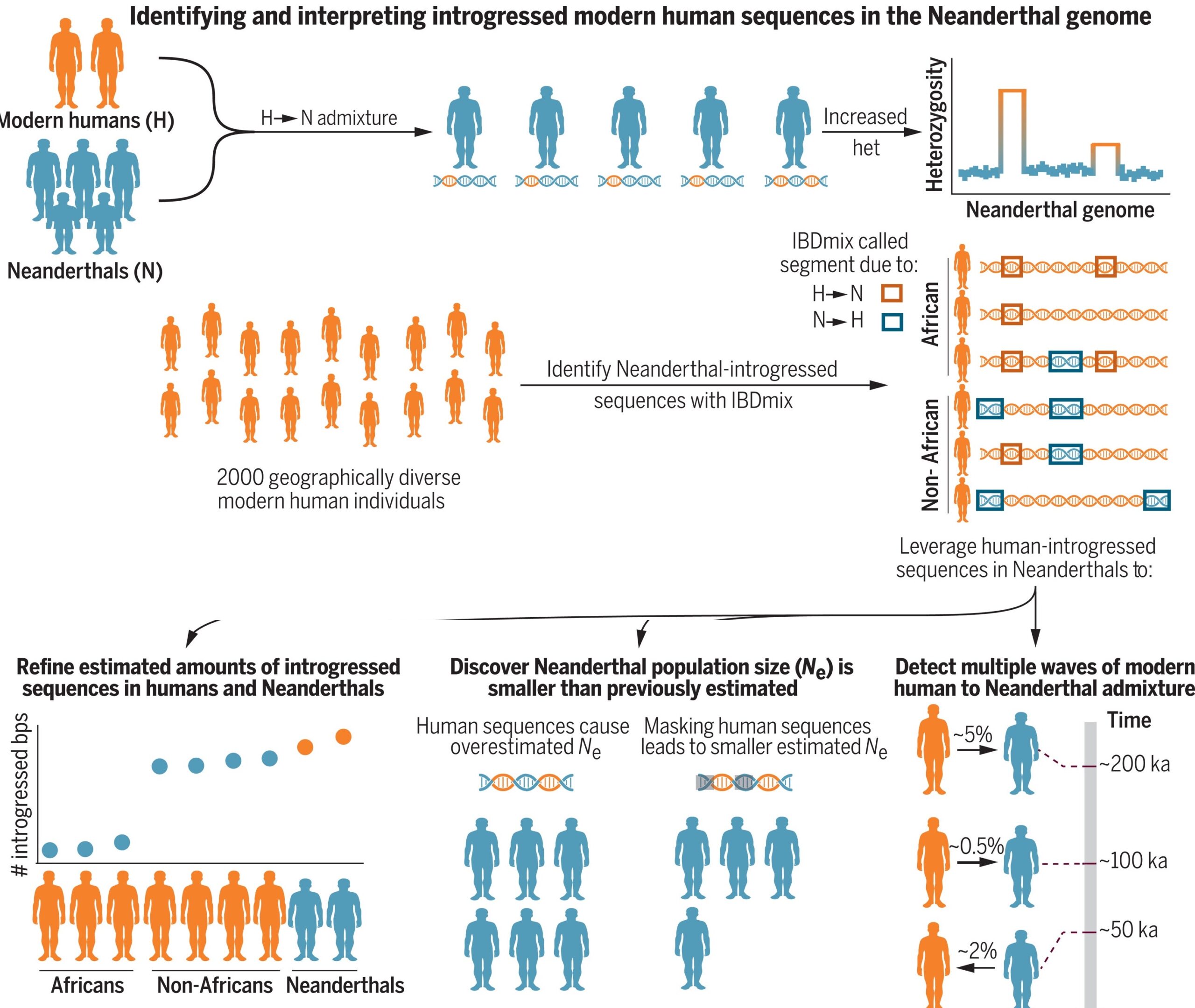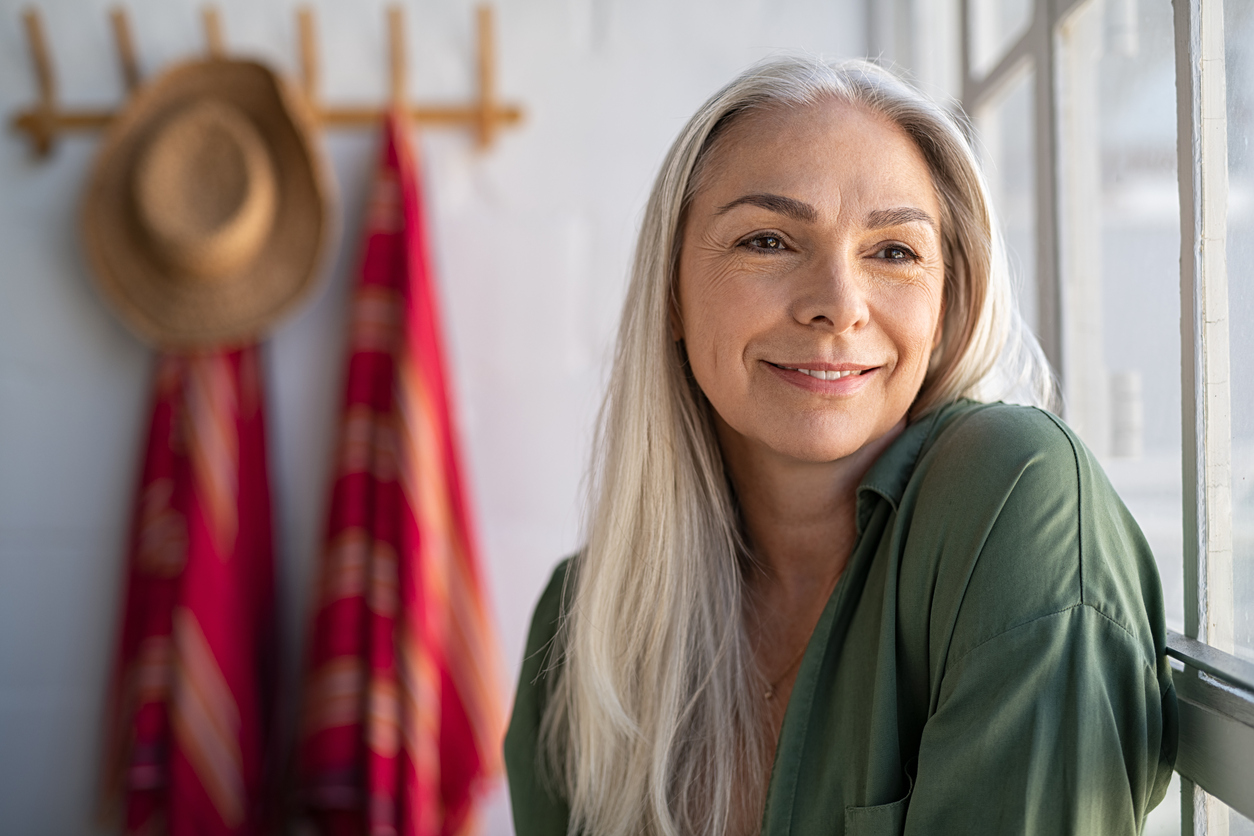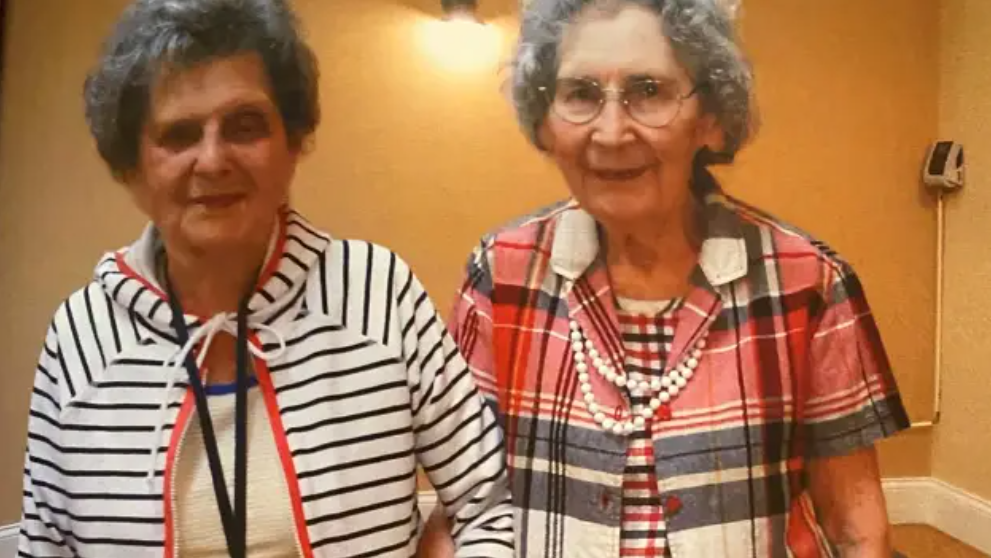Original article published in NIH National Library of Medicine (Structured Abstract) INTRODUCTION For much of modern human history, we were only one of several different groups of hominins that existed. Studies of ancient and modern DNA have shown that admixture occurred multiple times among different hominin[...]
Original article seen in Nice News Articles featuring advice from centenarians seem to abound these days, with people age 100 or older graciously offering tips for a long and happy life. Indeed, there are more men and women in the demographic alive today than there[...]
Original article published in Alzheimers.gov Among sets of twins in which one has dementia, the other may have an increased risk of a shortened lifespan, even if that person does not have the disease, according to an NIA-funded study. The findings, published in Alzheimer’s & Dementia, suggest[...]
Original article seen in The New Yorker A friend of mine knew a wealthy man who had decided to live forever. That made him hard to be around, my friend told me, in an e-mail, because he was “always dropping to the floor to do[...]
Article from Maria Shriver Sunday Prayer When I was younger, I believed that happiness happened to you. But no matter what I did, I never experienced any sort of purpose or joy. That's because I was thinking about happiness all wrong. After ten years of studying the science[...]
Original articles from Technology Networks Regular exercise and a healthy diet may be enough to offset the effects of life-shortening genes, according to new research published in BMJ Evidence Based Medicine. An unhealthy lifestyle, on the other hand, could result in a 78% higher risk[...]
Original article seen in LA Times Women have actually won the longevity lottery. We live, on average in the United States, six years longer than men. So that’s incredibly positive. But there is a dark side to this. And that is: We women, on average,[...]
Original article from Prevention Doctors say this is a major indicator that our genes are not our destiny. We may not all live to 100, but we can still work towards a long and fruitful life. For those with genetic risks of dying early, adopting[...]
Original Mind Body Green article available HERE. By 2050, researchers expect 115 million people will be living with dementia around the world. In the U.S., the CDC expects to see the sharpest increases in cases among Black and Latino Americans. And while dementia risk increases[...]
Article courtesy of Ann Gibbons for Science Here’s another blow to the popular image of Neanderthals as brutish meat eaters: A new study of bacteria collected from Neanderthal teeth shows that our close cousins ate so many roots, nuts, or other starchy foods that they[...]
Original article from Technology Networks A new study from the Institute of Psychiatry, Psychology and Neuroscience (IoPPN) at King’s College London has established that Intermittent Fasting (IF) is an effective means of improving long term memory retention and generating new adult hippocampal neurons in mice, in[...]
Article courtesy of Emeran Mayer, MD Two recent articles in the New York Times addressed the topic of Alzheimer’s disease (AD), one based on a recent scientific publication that showed resilience and resistance to develop cognitive decline in centenarians, the other one addressing the recent controversial[...]
Article by Dr. P.K. Gupta The director of the George Washington University College of Medicine argues that the brain of an elderly person is much more plastic than is commonly believed. At this age, the interaction of the right and left hemispheres of the brain becomes[...]
Article from MedPageToday Dementia incidence tripled in lonely older adults who otherwise would be expected to have relatively low risk based on age and genes, researchers found. Lonely older people under age 80 without an APOE4 allele had a threefold greater risk of dementia (adjusted HR[...]
Article courtesy of MedPageToday Diets high in inflammatory foods were linked with global markers of brain aging and cerebral small vessel disease on MRI, a cross-sectional study showed. Compared with anti-inflammatory diets, those considered pro-inflammatory on the Dietary Inflammatory Index (DII) were associated with smaller total[...]
The Cleveland neurologist shares habits that have allowed his body and brain to stay healthy. Original article from TODAY By A. Pawlowski Ask Dr. Howard Tucker about people who want to retire early and he’s incredulous. At 100, the neurologist has been working in medicine[...]
Article courtesy of MedPageToday Omega-3 fatty acid concentrations in red blood cells were linked with brain structure and cognitive function in midlife, an exploratory cross-sectional study showed. In about 2,200 people with an average age of 46, a higher omega-3 index was associated with a larger[...]
Article courtesy of The New Yorker In the summer of 2020, my grandmother stopped eating and getting out of bed. She had fallen, fractured a vertebra, and forgotten about it. I flew to France with a dozen of Mamie’s favorite sesame-seed bagels, and I lived with[...]
Alzheimer’s disease is a leading cause of death in the United States, and millions of Americans are affected by the disease. It’s important to distinguish the facts from the myths about Alzheimer’s, especially when it comes to finding information online. Read on to learn about common[...]
Article courtesy of Live Science A new study links obesity to patterns of brain tissue loss that overlap with those seen in Alzheimer's disease. The brains of older adults with obesity show patterns of gray matter loss that are strikingly similar to those seen in people[...]
This is for all of us who are battling the long winter weather blues! Article by Jill Horne appeared on the blog for Emeran Mayer Evidence from longevity research studies suggests that optimism may be key factor influencing healthy aging and lifespan, independent of lifestyle factors[...]
Article courtesy of CNBC Centenarian Ruth Sweedler has impressive recall and can make good conversation about what’s going on in the world. Over the years, strangers and family members alike have commented on it. “My doctor loves to talk to me,” Sweedler says. “He’d say, ‘You’re[...]
Original article published in Science Alert ~~ Sometimes what's good for your heart is also good for your brain. A recent study of US adults over 50 found that those who owned a pet for more than five years scored better on cognitive memory tests[...]
Original Wall Street Journal article found here. Harvard geneticist David Sinclair, who has said his “biological age” is roughly a decade younger than his actual one, has put forward his largely unlined face as a spokesman for the longevity movement. The 54-year-old has built his[...]
Original article from Neuroscience News ~~ Summary: Centenarians harbor a unique immune cell type, immune activity, and highly functioning immune system that has adapted to a history of illness, allowing for exceptional longevity. Source: Boston University There are approximately 30 trillion cells in a human[...]

























